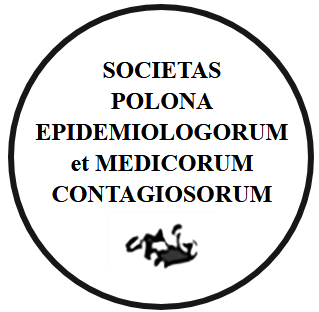PRACA ORYGINALNA
Smartphone usage and its association with stress-related bruxism, temporomandibular joint disorder among dental tutees - an analytical investigation
1
Master of Dental Surgery, Department of Public Health Dentistry, SRM Dental College, Ramapuram, India
2
Professor & Head, Department of Public Health Dentistry, SRM Dental College, Ramapuram, India
3
Reader, Department of Public Health Dentistry, SRM Dental College, Ramapuram, India
4
Senior Lecturer, Department of Public Health Dentistry, SRM Dental College, Ramapuram, India
Data nadesłania: 23-04-2024
Data ostatniej rewizji: 21-07-2024
Data akceptacji: 02-08-2024
Data publikacji online: 08-08-2024
Data publikacji: 10-12-2024
Autor do korespondencji
N Divya Lalitha
Master of Dental Surgery, Department of Public Health Dentistry, SRM Dental College, Ramapuram, India
Master of Dental Surgery, Department of Public Health Dentistry, SRM Dental College, Ramapuram, India
Przegl Epidemiol 2024;78(3):266-272
SŁOWA KLUCZOWE
DZIEDZINY
STRESZCZENIE
Background: In recent times, smartphones have become a major part of our lives due to its various benefits such as easy accessibility of information, social connectivity, convenience, smaller size etc. Smartphone overuse can cause stress in a student which can invariably lead to clenching or grinding of teeth and temporomandibular disorder. Objective: The aim of this study was to evaluate the association between smartphone use, stress due to over-usage, bruxism and temporomandibular disorders among dental students in a private dental institution in Chennai, India. Material and methods: The present cross-sectional study was conducted among Dental undergraduates and postgraduates studying in a private dental institution in Chennai about smartphone usage. The sample included 121 undergraduate and postgraduate dental students. A self-administered pre-tested questionnaire containing 18 questions was filled out by the participants and was followed by a clinical examination for Bruxism and Temporomandibular disorder. Descriptive statistics was used and the association was assessed using Pearson’s Chi-Square test. Statistics were done using SPSS version 23.0 and the p-value was set at 0.05. Results: Out of the total 121 participants, 80 (66.1%) were males and 41 (33.9%) were females. 99 (81.8%) were undergraduates and 22 (18.2%) were postgraduates. 90 (74.4%) felt stressed when unable to use their smartphone whereas 31 (25.6%) did not feel so. Bruxism was determined in 95 (78.5%) of the study participants, including 87 out of 90 (96.7%) in those feeling stressed and 8 out of 31 (25.8%) in those not feeling stressed when unable to use a smartphone (p=0.0005). Conclusions: In the present study, a significant association was found between stress over not being able to use a smartphone and bruxism. Using smartphones for learning purposes is definitely beneficial when used appropriately.
Udostępnij
Przetwarzamy dane osobowe zbierane podczas odwiedzania serwisu. Realizacja funkcji pozyskiwania informacji o użytkownikach i ich zachowaniu odbywa się poprzez dobrowolnie wprowadzone w formularzach informacje oraz zapisywanie w urządzeniach końcowych plików cookies (tzw. ciasteczka). Dane, w tym pliki cookies, wykorzystywane są w celu realizacji usług, zapewnienia wygodnego korzystania ze strony oraz w celu monitorowania ruchu zgodnie z Polityką prywatności. Dane są także zbierane i przetwarzane przez narzędzie Google Analytics (więcej).
Możesz zmienić ustawienia cookies w swojej przeglądarce. Ograniczenie stosowania plików cookies w konfiguracji przeglądarki może wpłynąć na niektóre funkcjonalności dostępne na stronie.
Możesz zmienić ustawienia cookies w swojej przeglądarce. Ograniczenie stosowania plików cookies w konfiguracji przeglądarki może wpłynąć na niektóre funkcjonalności dostępne na stronie.




